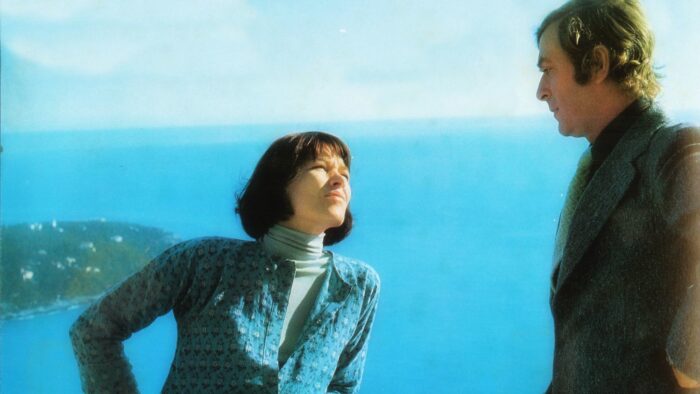Pulp writer Lewis Fielding’s (Michael Caine) wife Elizabeth (Glenda Jackson), vacationing alone in Baden-Baden, meets a drug courier and gigolo named Thomas (Helmut Berger, a Visconti amanuensis who effervescently exploits his real-life decadent image). The attraction leads, at least in the Buñuelian flashes of stream-of-consciousness in the mind of the controlling paterfamilias, to a forbidden relationship. Lewis hires his rival, who claims to be a poet and is hunted by gangsters, as his secretary so he can keep a closer eye on the situation.
“The endangerment of the intellectual bourgeois marriage through the influence of a fascinating minor character,” as Matti Salo described the events, is one of Joseph Losey’s recurring themes, and the director’s inherent coldness perfectly complements scriptwriter Tom Stoppard’s semi-clinical, semi-Pinteresque ardour. This lingering mood piece draws its “joy” from dry British satire and bitterly antiseptic comedy, revelling in the visual potential of bleak modern design, enthusiastically varying the passive-aggressive marital sadism of Carson McCullers / John Huston’s (Reflections in a Golden Eye, 1941) and Edward Albee / Mike Nichols (Who’s Afraid of Virginia Woolf?, 1962) as well as Pasolini’s Teorema (1968). The elevator, which grows into a “cage of desire,” has not been used so intensively in film since the days of Louis Malle.
Lauri Timonen
